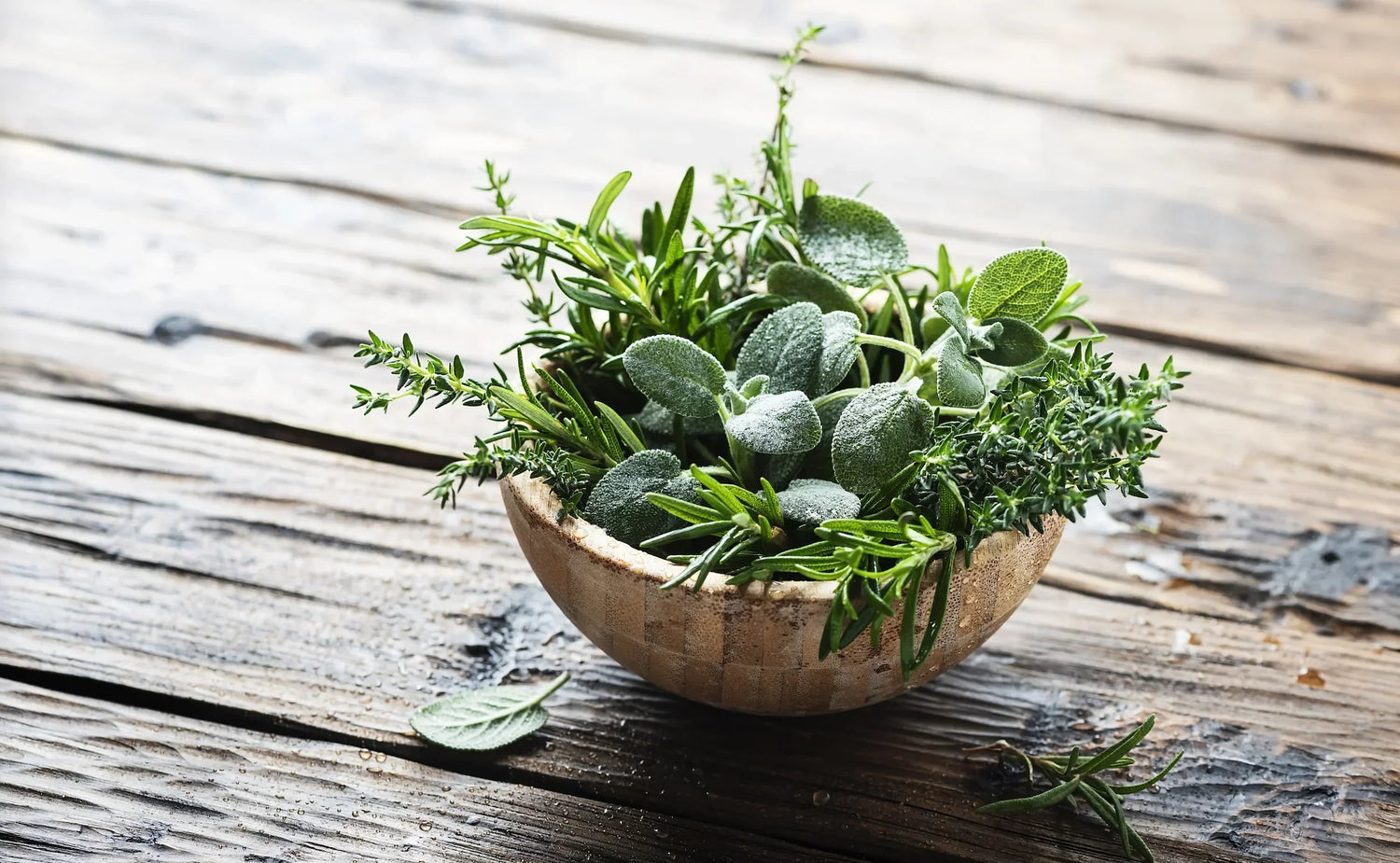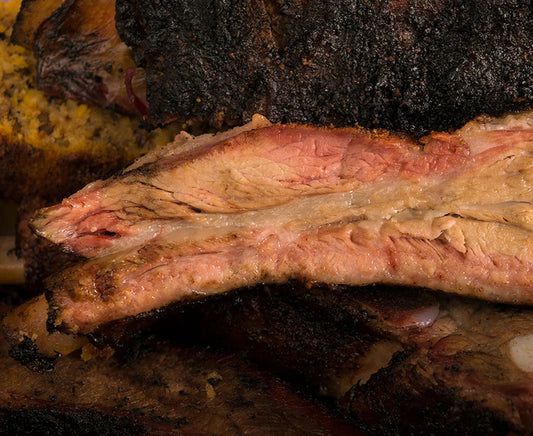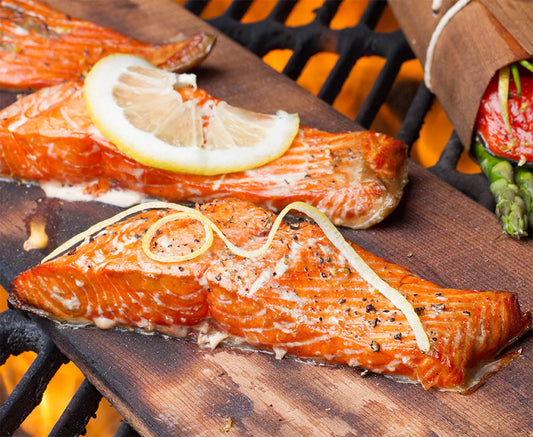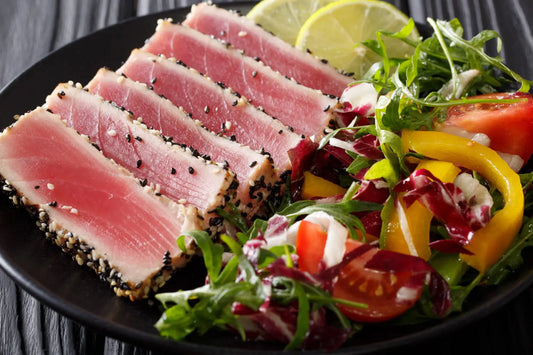One thing that sets food smoking apart from other methods of barbequing is the flavor. The intense and rich smoky flavor that smoking imparts to the food cannot be substituted by either grilling or roasting. However, smoked food connoisseurs love a hint of additional flavor to the meat too. Sometimes this additional flavor is rendered by a rub or brine. In both methods, herbs play a crucial role. Besides flavoring the food, herbs have a world of other benefits that boost good health.
Benefits of herbs
Here are three basic benefits of adding herbs or herb-based spices to the rub or brine before smoking food.
Contain nutrients: Herbs are plant-based products naturally rich in nutrients. When these nutrients combine with the food protein, it provides a wholesome addition to the food.
Fights bacterial growth: Due to the anti-inflammatory properties in herbs, it can prevent bacterial growth on the food increasing its shelf life. As a result, herbs also decrease the chances of food poisoning.
Improve digestion: Some herbs contain an enzyme that aids in digestion. This helps to prevent sickness from overeating.
10 herbs that enhance the flavor of smoked foods

Now that we have highlighted the benefits of using herbs in food before smoking, let’s take a look at the ten most common herbs that make smoked foods delicious.
Cilantro: This is a popular ingredient in Mexican cuisine because of its antibacterial properties and mild spicy taste.
Basil: This herb has anti-inflammatory properties that keep the food fresh for longer as well as adding flavor. It is also rich in Vitamins A, K, calcium, and iron.
Chives: Apart from adding a slightly pungent flavor to the food to enhance the smoky essence, chives are loaded with antioxidants that boost good health.
Mint: This is a natural remedy for gastronomical disorders. It also added a calm flavor to the food and is a rich source of Vitamins A, C, and manganese.
Dill: Being rich in antibacterial and antioxidant properties, dill fights carcinogens found in smoke. It also adds a mild flavor to fish, beef, and vegetables.
Parsley: It is rich in antioxidants and also contains vitamins A, C, and folic acid. It adds a refreshing flavor to any food.
Oregano: It is a herb commonly used to spice foods. It is a rich source of antioxidants that help to prevent carcinogens.
Sage: It reduces inflammation to preserve the food for longer. Sage is also rich in Vitamin K that boosts bone health.
Thyme: Anti-oxidant properties in thyme prevent microbial growth keeping the food fresh for longer. Thyme also contains Vitamin K, manganese, and iron.
Rosemary: This is a popular condiment in different foods. Rosemary is rich in antioxidants that fight pathogens to reduce food-borne diseases.
Fool-proof tricks to enhance flavor in smoked foods

Brining/ curing: When the meat is soaked in brine or cured for hours, it imparts the flavors of the spices in it. Brining or curing for longer hours helps deeper penetration of the flavors.
Want to learn more about the brining and curing process for food smoking? We have a full catalogue of articles at your service!
How Brining Meat Influences The Flavor
Directions On Brining And Curing Your Meat For Food Smoking
Curing and Smoking Meats for Home Food Preservation
Maintain consistent temperature: Smoking at a low and consistent temperature helps the food absorb all the flavors completely without becoming charred quickly. It also prevents food from becoming overcooked or undercooked.
Use a dedicated food smoker: A good food smoker can perform all the essential tasks of food smoking automatically. For instance, the Bradley Smoker self feeds fuel from the chamber to work constantly for up to 10 hours with supervision. It has digital controls which allow presetting of temperature and time to get the desired doneness. Due to dual heat elements, you can use Bradley Smokers for hot or cold smoking.
Flavor with wood: When we use fruity flavored wood like applewood, oak for smoking, they produce flavored smoke that adds an essence to the food. Bradley Bisquettes are available in 17 flavors, such as oak, hickory, cherry, maple, apple, etc.
Don’t serve immediately: Let the food rest for a while after smoking. This will give ample time for the food to reabsorb all the juice secreted during smoking. It will enhance the flavor making it tender and succulent.
Final Thoughts
The article was intended to provide a basic insight into the use and benefits of different herbs in food smoking. We hope these Bradley tips & tricks on flavoring food before and after smoking have been helpful to beginners interested in acing the art of food smoking. For more great ideas on how to get the most of your Bradley Smoker, check out the awesome articles on our Bradley Smoker Food Smoking Blog for more tips & tricks.




